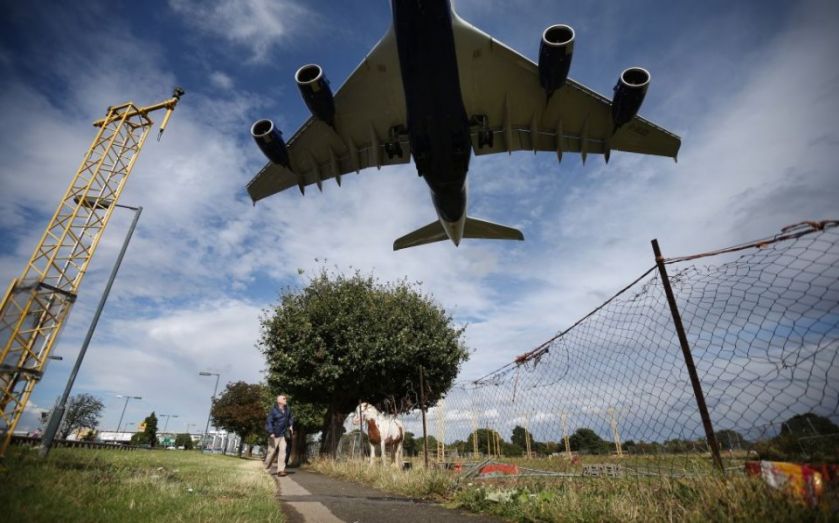Heathrow has always been the answer – now there’s finally the political support for expansion

UK infrastructure projects don’t tend to be speedy. Plans for a railway linking Paddington station to the City of London and the docks were approved by Parliament in the 1880s – but Crossrail will only be fully operational in 2019. William Gladstone, as chancellor of the Exchequer, was presented with a proposal for a tunnel under The Channel 129 years before the first trains travelled between Britain and France. By comparison, the M25 was positively rushed through, taking a mere five decades to be approved and constructed.
The story of airport expansion in the South East is similar. An early plan to expand Heathrow north of the Bath Road was abandoned in 1953. In the 1970s, the Third London Airport Commission recommended a new airport to the north east of London. But one of the commissioners suggested a new airport in the Thames Estuary instead and the government of the day went with that. It was cancelled a year later following a General Election. More recently, the last Labour government gave the green light for a short additional runway at Heathrow, only for the coalition government to reject that particular scheme.
All of this shows that, when there is a clear answer to an infrastructure need, it is a matter of “when” not “if”. Good ideas don’t die. Which is why we keep circling back to Heathrow. It is the only viable answer to the question.
As former aviation ministers, we have closely followed the debate. One of us was involved with the previous approval of expansion at Heathrow, the other with the establishment of the Airports Commission. Given that Spitfires were still in active service when the last full-length runway was built in the South East, we have now passed the point of a decision being urgent. Luckily, the conditions exist to end the stalemate: the solution is clear and would receive a comfortable majority in Parliament.
Heathrow is that solution. The Airports Commission Final Report is the most rigorous study of the issue for a generation. It has produced a compelling and unambiguous recommendation for the importance of Heathrow expansion to the UK economy as well as for the mitigation measures that can ensure expansion takes place in an environmentally responsible way.
The critics will cry that we have tried this before and take off has always been grounded by the politics. But there are good reasons to think it will be different this time. The runway is in a different location. The insulation offer is around eight times bigger. And Heathrow has rebuilt some of the trust that BAA had lost in the local community. There is still some way to go, but in the constituencies closest to the airport, support for expansion enjoys a 17 point lead over opposition.
Which brings us to the hard politics of this debate. Local political opposition has declined as Heathrow’s expansion plans have been redesigned with more focus on mitigating the local impacts. In years gone by, the anti-expansion “2M Group” counted 24 local authorities as members. Their submission to the Airports Commission in February this year was signed by just four.
In Parliament, there is a clear majority in favour of expansion. An independent poll of MPs conducted by Dods in July this year found that 69 per cent support Heathrow expansion. There will be more than enough Labour votes to offset the handful of Conservatives who will inevitably vote against. Then there will be the 13 votes from Northern Ireland. While the SNP are still considering their position, it is clear that Scotland has much to gain – more flights into Heathrow, at better times, connecting to more long haul destinations.
The case for Heathrow expansion has endured for many years. It is categorically the right solution to the UK’s aviation needs. The necessary, cross-party political support now exists. The time for delay is over; the time for decision is now.